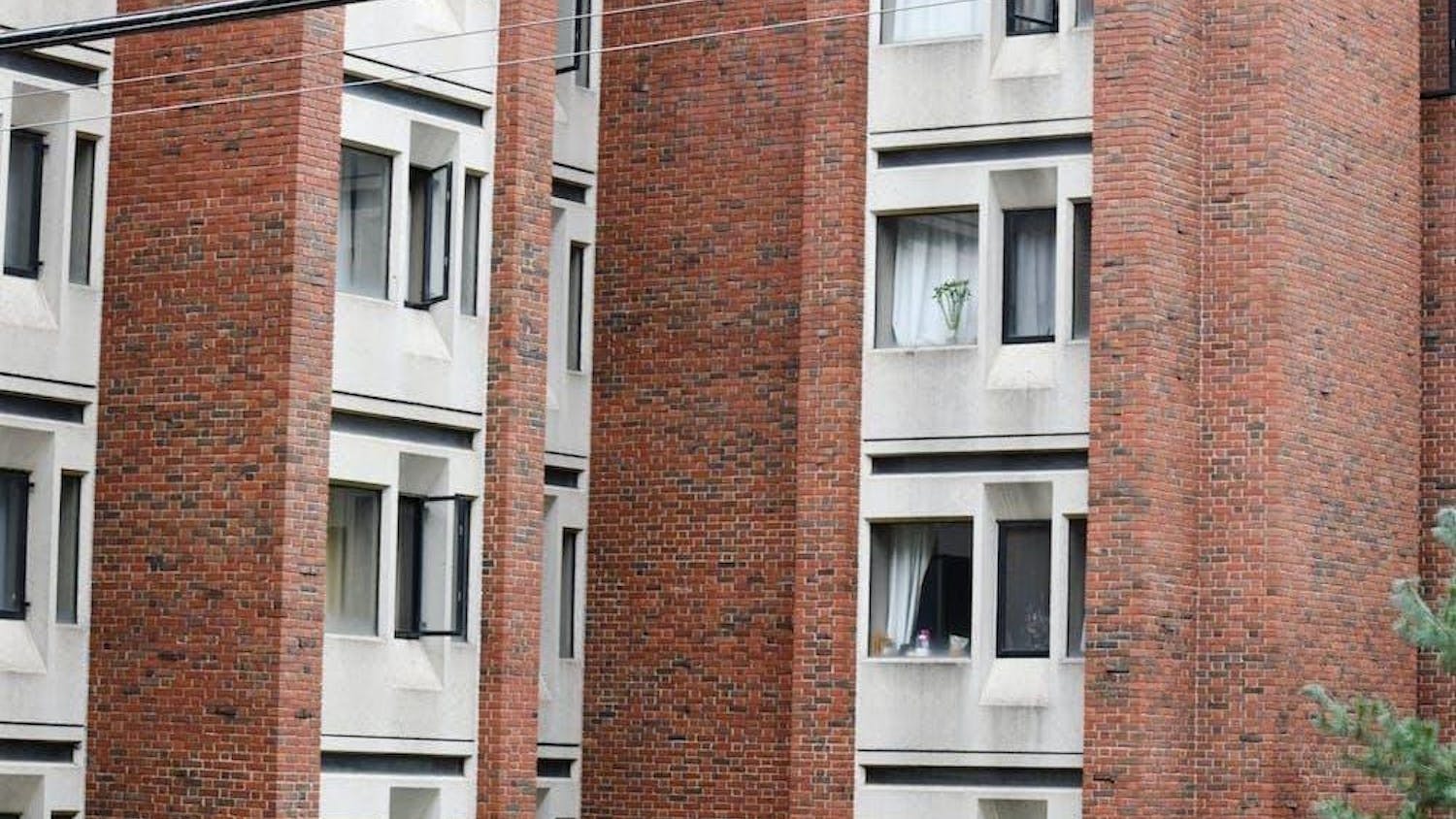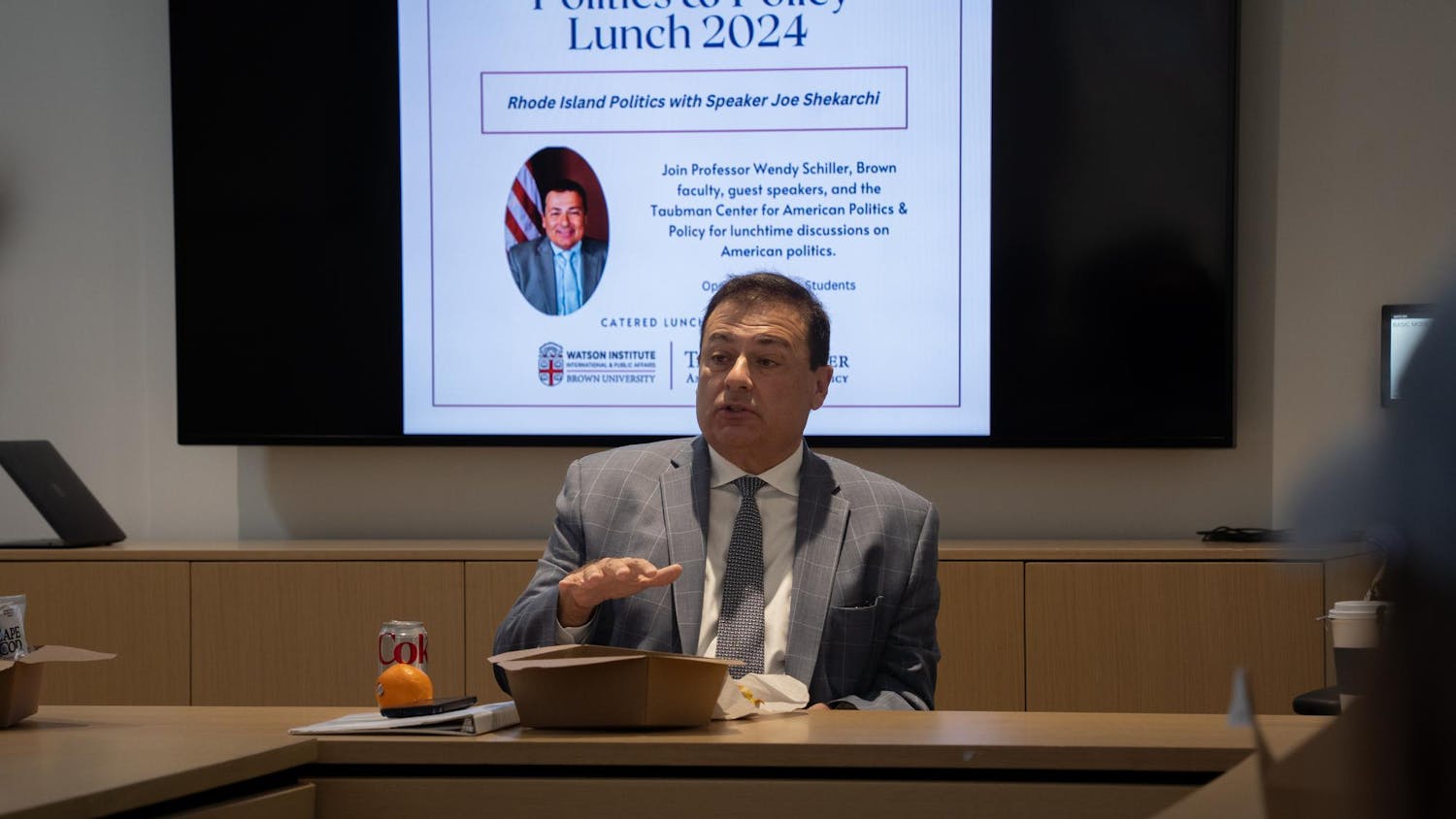The LGBTQ Center brought poet and performance artist Alok Vaid-Menon to Rites and Reasons Theatre last Friday for an event in the Queer Legacy Series. Featured on various media platforms such as HBO and the New York Times, Vaid-Menon is internationally renowned for their unique voice as well as their use of art and expression in challenging the gender binary.
This year’s Queer Legacy Series is themed “Queering Across Borders.” According to Je-Shawna Wholley, assistant director of the LGBTQ Center, this theme arose from the increasing importance placed upon borders in today’s sociopolitical climate. “We hear a lot in the news about walls and difference and otherizing people,” she said.
Vaid-Menon’s performance weaved elements of comedy and improvisation into their hard-hitting and evocative poetry. This included a multimedia performance of a selection of poems, with a focus on work from their collection “Femme in Public.”
Vaid-Menon’s topic aligned with the theme of the series, according to student programmers Eileen Cruz ’20 and Nicole King ’19. While in the process of selecting potential events to bring to campus, Vaid-Menon stood out as “the energy that we (needed),” said Cruz.
Wholley said that the intention behind this year’s programming was to “debunk this idea that borders separate us.”
“We really wanted an opportunity to celebrate difference, and non-Western ideas of what it means to be queer and trans,” she added. Other events in the series, including “Undoc-QT ARTivism: Creating Beyond Borders” and “Queer Xicano Chisme: On Queerness, Patriarchy, Nationalism, and the Future,” follow in the same vein of bringing attention to the intersections of identities and the importance of unity.
The juxtaposition of humor and vulnerability in the performance conveyed a narrative that was all at once bitingly satirical and deeply moving. “They incorporate a lot of comedy, and I think they do a really great job of interweaving laughing with mourning,” King said. The performance left the audience swinging constantly between hearty laughter and the brink of tears.
Vaid-Menon revealed the dangerous position of gender non-conformity in the world at large. They addressed the pressure to fit into the standards constructed by preconceived notions of gender binaries. “I believe that we should be able to look as gender non-conforming as we want,” they said, adding “we have to dress to kill or be killed.”
“I should be able to walk outside of my house unshaven, without hormones, without any visible alterations to look like what society deems as a woman, and still be able to be read as a woman, if I say that’s what I fucking am, but that’s not the world and the movement we exist in,” they continued.
Their art stands as a call for people to self-educate about the issues, narratives and art of trans and gender non-conforming people, they said. “I believe in gender euphoria, not gender dysphoria,” said Vaid-Menon toward the end of the performance.
To this end, Vaid-Menon delivered a performance that was highly personal, allowing audiences insight into intimate details of their narrative. They brought up specific examples from the violence they face daily. “People throw trash at me and people tell me to die … I’ve never really had anyone defend me in public,” they said.
During the question-and-answer section, they said that the vulnerability of their performance comes from them telling themselves to “use the stage to create the world that you need.” They added that this world, for them, is “one where we are aware of the fact that crying is essential.”
According to Vaid-Menon, this ability to find and bare their scars stemmed ultimately from an acceptance of the necessity of imperfection in art and in ourselves. They compelled the audience to accept that life can be “messy.”
The acceptance of imperfection is a step toward understanding that violence should be replaced with the acknowledgement of humankind’s necessary interdependence. “That should be what we are fighting for, saying ‘I’m glad that you’re falling apart,’ because that means you need me … perfection is loneliness, because when I’m perfect I don’t need you and when I’m imperfect, I do,” they said.




